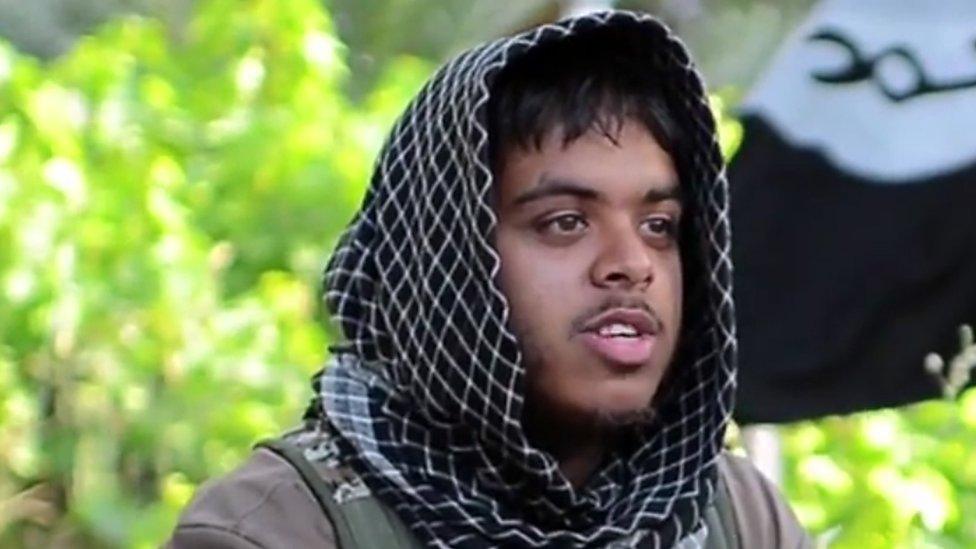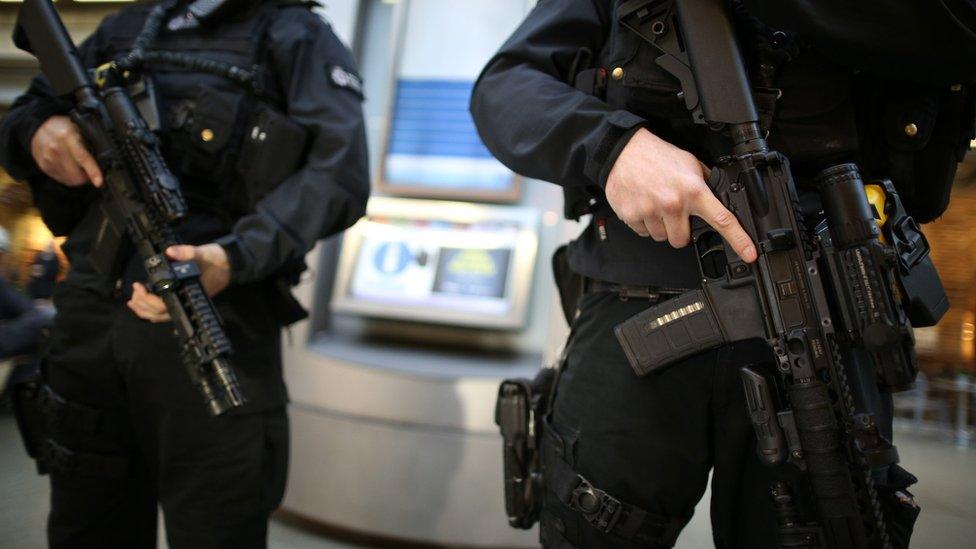Basis for air strikes on jihadists to be set out
- Published

Reyaad Khan, from Cardiff, was killed in an RAF drone attack
The UK's chief legal adviser is to set out - for the first time - the government's basis for military strikes against terror suspects abroad.
Attorney General Jeremy Wright will say in a speech later that it is vital that international law adapts to respond to modern threats.
In September 2015, David Cameron revealed that an RAF drone had killed two British jihadists in Syria.
Mr Wright will say the frontline in conflict has "irretrievably altered".
Lethal force
He will stress it is essential that the UK has the right to deploy lethal force in self-defence, and will argue the law must keep up with "changing times".
Technology "has made it easier" for terrorists to carry out attacks, he will say.
The speech comes after controversy in September 2015, when two Britons - Reyaad Khan from Cardiff and Ruhul Amin from Aberdeen - were killed in an RAF drone strike in Raqqa, in an area held by the Islamic State group.
MPs and peers called for ministers to clarify the legal basis for carrying out such a strike.
Mr Wright will add: "The government has a primary duty to protect the lives of its citizens. But it can only use lethal force where there is a clear legal basis for doing so."
Governments must determine whether to take action based on how certain it is that an attack will come, how soon it will be and on what scale.
It must then consider whether anything could credibly be done to prevent the attack, and whether it is the last clear opportunity for preventative action.
The official threat level for international terrorism in the UK has stood at severe for more than two years, meaning an attack is "highly likely" but not imminent.
Meanwhile, Britain's security services and counter-terrorism units have foiled at least 10 attacks in the past two years.
- Published7 September 2015

- Published8 December 2016
